
Issue 14, June 2019
About this bulletin
This bulletin issue compiles our latest publications and events, with a focus on women’s broader political participation in various arenas, beyond formal electoral moments, as well as the need for more concerted action, collaboration, and solidarity among gender actors.
1. Featured resources on the Gender Equity Network
Women's Political Participation in Lebanon and the Limits of Aid-Driven Empowerment
By Lebanon Support
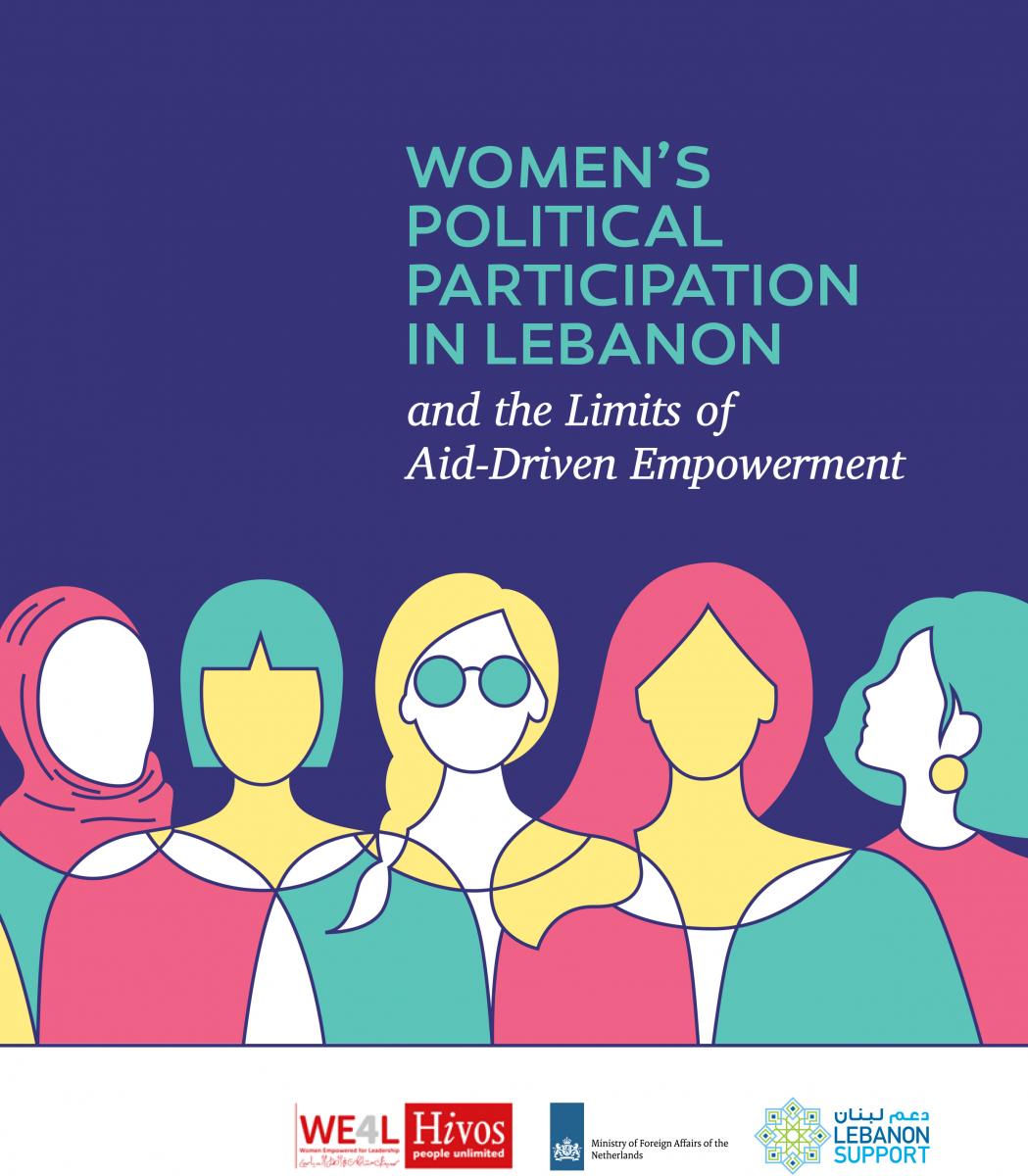
This report attempts to answer current gaps in the literature analysing WPE and WPP donor-funded initiatives in Lebanon, and asks the following question: what explains the current gap between donor-funded WPE and WPP initiatives, and the continued low rates of women’s political participation and overall low political empowerment in Lebanon?
This report is available in both English and Arabic on this link and it’s published in partnership with HIVOS through the Women Empowered for Leadership (WE4L) programme, funded by the Netherlands Foreign Ministry FLOW fund.
Infographic: “Women’s Political Participation in Lebanon: An Overview of Empowerment Initiatives in Lebanon (2009-2019)”
This infographic presents a mapping of the main Women’s Political Empowerment (WPE) and Women’s Political Participation (WPP) initiatives in Lebanon from 2009 to 2019. These initiatives were grouped according to four primary key themes, the main focus of these programs as well as their type of activity. The visual below highlights an overwhelming focus of initiatives on women’s political participation in the formal political arena, without giving much consideration to political empowerment outside the realm of formal politics.
This infographic is based on Lebanon Support's report titled: "Women’s Political Participation in Lebanon, and the Limits of Aid-Driven Empowerment".
It is published in partnership with HIVOS through the Women Empowered for Leadership (WE4L) programme, funded by the Netherlands Foreign Ministry FLOW fund.
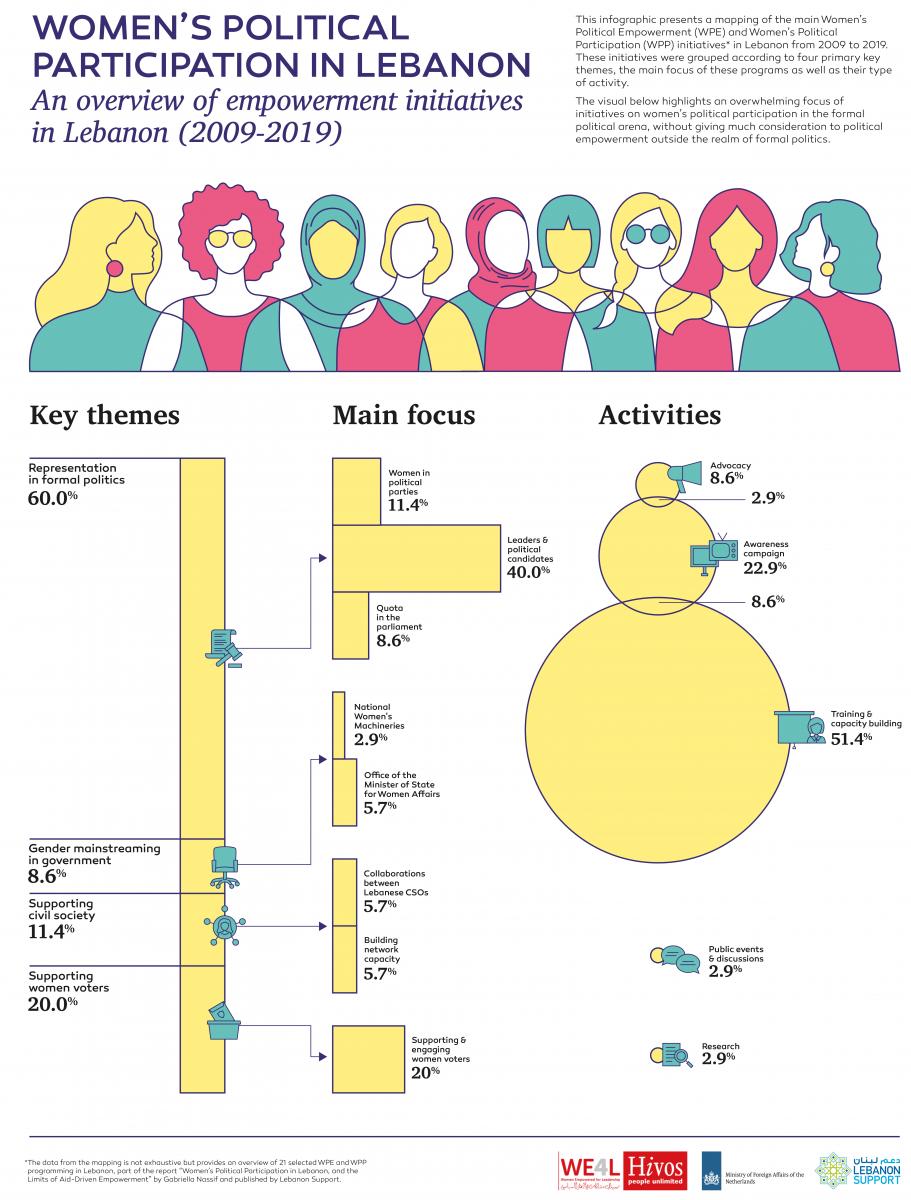
You can view the infographic in English and Arabic here.
Setting the Agenda towards Gender Equity
Lebanon Support is publishing this briefing article “setting the agenda” for the policy priorities and recommendations related to gender equity and rights, ahead of International Women’s Day. The briefing article is based on extensive participatory research and consultations with actors, as well as a review of the main demands from the current social movement.
Read the full article here.
Lebanon’s 2018 Election: New measures and the resilience of the Status Quo.
By: Daniel L. Tavana and Christiana Parreira
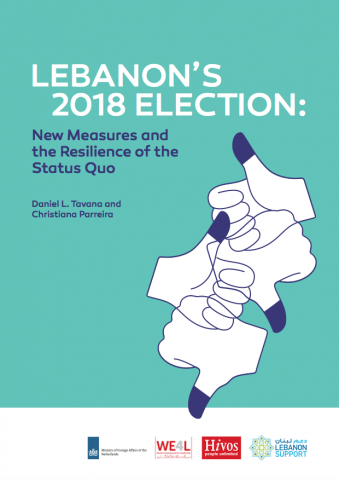
This policy brief explores how—despite widespread citizen frustration—the status quo prevailed. The brief will subject the above paradoxes to greater empirical scrutiny, with particular attention to the performance of new actors. It draws findings from an analysis of election results, participant observation of the campaign period, and focus group interviews conducted before and after the election. This brief also analyses how citizen perceptions of the new electoral law, the entrance of civil society lists and movements, party resource advantages, and extra-legal modes of manipulation contributed to the reproduction of Lebanon’s electoral status quo.
This brief is published in partnership with HIVOS through the Women Empowered for Leadership (WE4L) programme, funded by the Netherlands Foreign Ministry FLOW fund.
This policy brief is available in English and Arabic.
2. Events organised by Lebanon Support
International Feminisms Festival
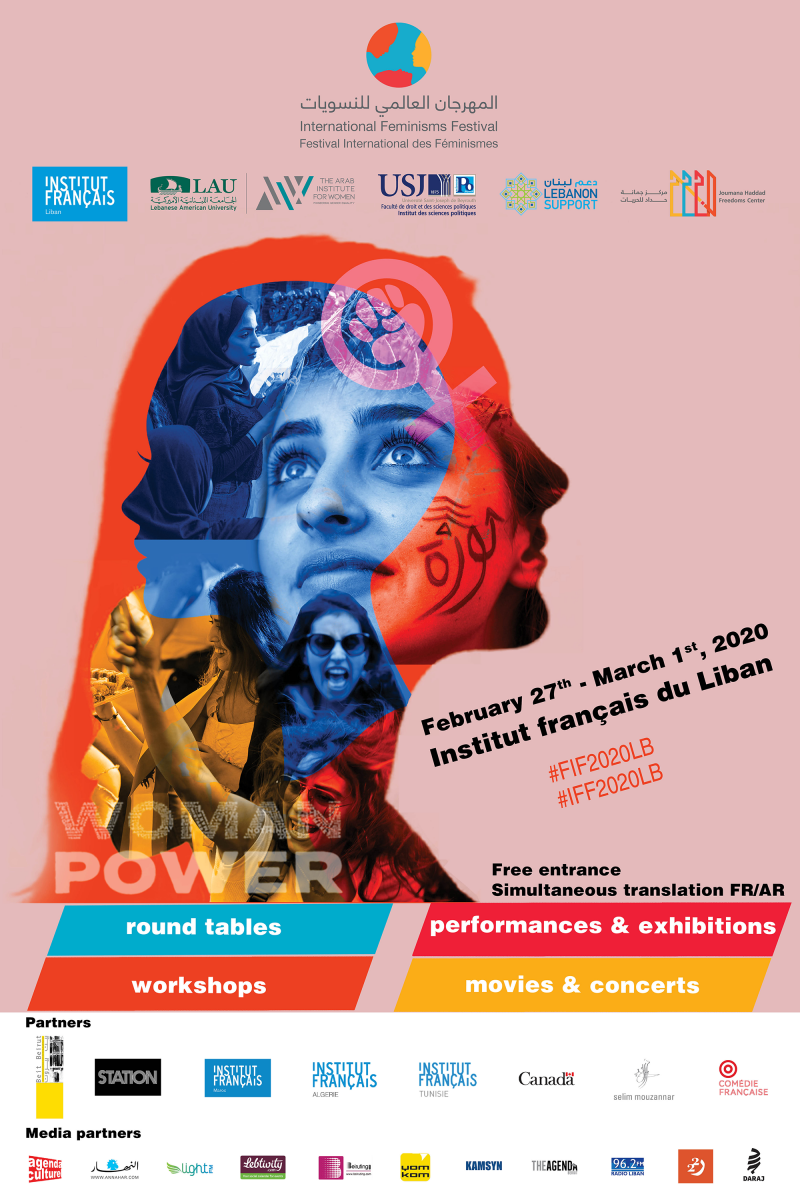
Lebanon Support was part of the organising committee of the International Feminisms Festival with L’Institut français du Liban, the Joumana Haddad Freedoms Center, the Arab Institute for Women, and l’Institut des sciences politiques de l’Université Saint-Joseph for the first time in the Middle East. This festival was dedicated entirely to the history of women movements and the issues and challenges faced by them worldwide.
The multidisciplinary programme included round tables, workshops, and art performances and gathered more than 1200 participants over the course of the four days. This event, organised by a diversity of actors, created a space for a rich programme inviting reflection, discussion, and debate on often times controversial ideas, approaches, forgotten struggles, and taboos.
A breathtaking artistic performance from Françoise Gillard, from the Comédie Francaise, shed light on the challenging and painful trajectory of abortion. The captivating retrospective of ORLAN’s works of art explored projections and preconceptions of women, and their multiple and constructed identities.
Similarly, the round tables and workshops raised controversial debates on crucial issues such as the diversity of schools of thought within feminisms and islamic feminisms notably in our region, the tension between state sponsored gender equality programmes and interventions and more grassroots feminist and LGBTIQ+ movements, the embeddedness of partirarchy in laws and praxis, as well as lively discussions on how to move forward in solidarity.
Gender Knowledge and Data-Sharing
On July 9th, 2019, Lebanon Support organised a closed workshop at Ar_Ka with the attendance of representatives from various women’s rights and gender organisations such as Association Najdeh, ABAAD, Arab Institute for Women, Young Women’s Christian Association, KAFA, Harasstracker, and The Lebanese Democratic Women’s Gathering RDFL.
The workshop was organised to discuss the added value of data sharing on gender, the challenges it entails, and most importantly the necessity of such collaborative exchanges to advance collective and civic action.
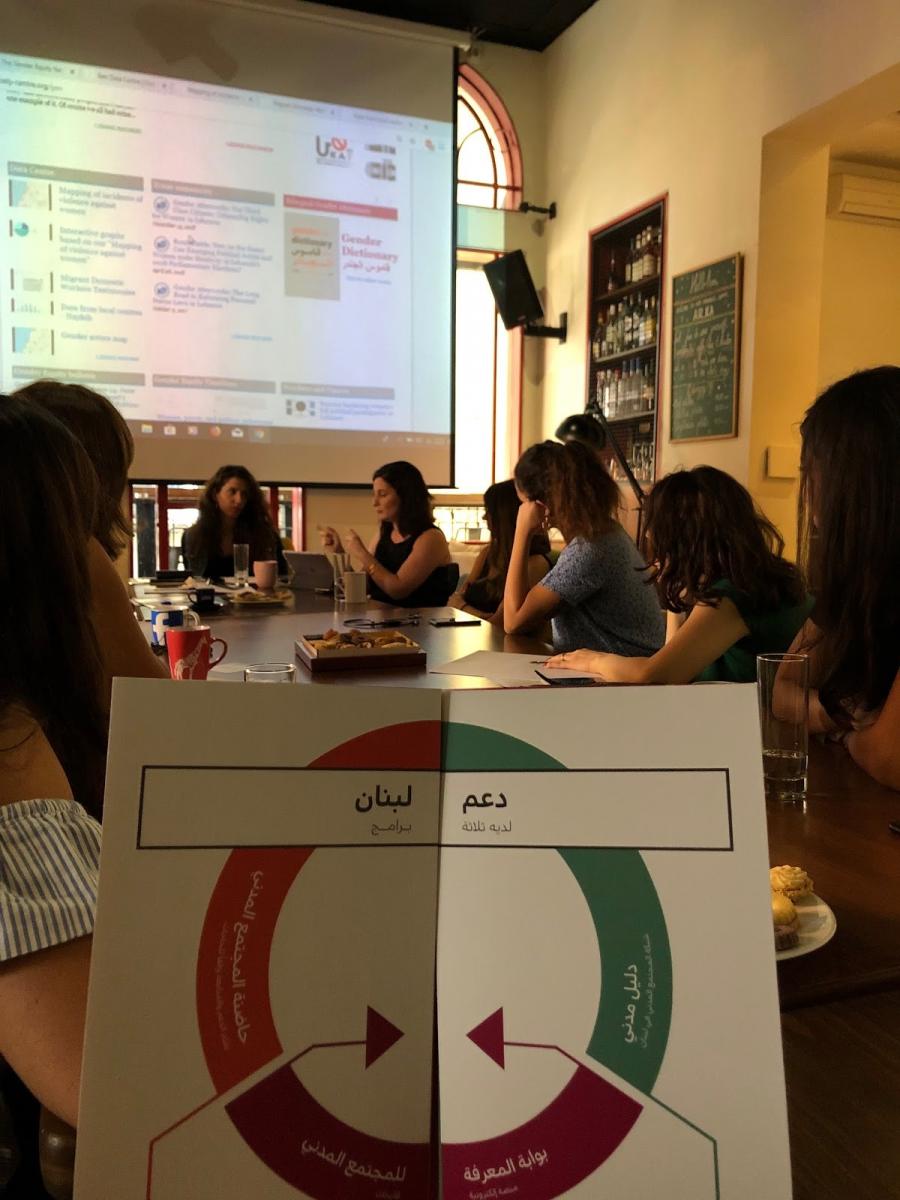
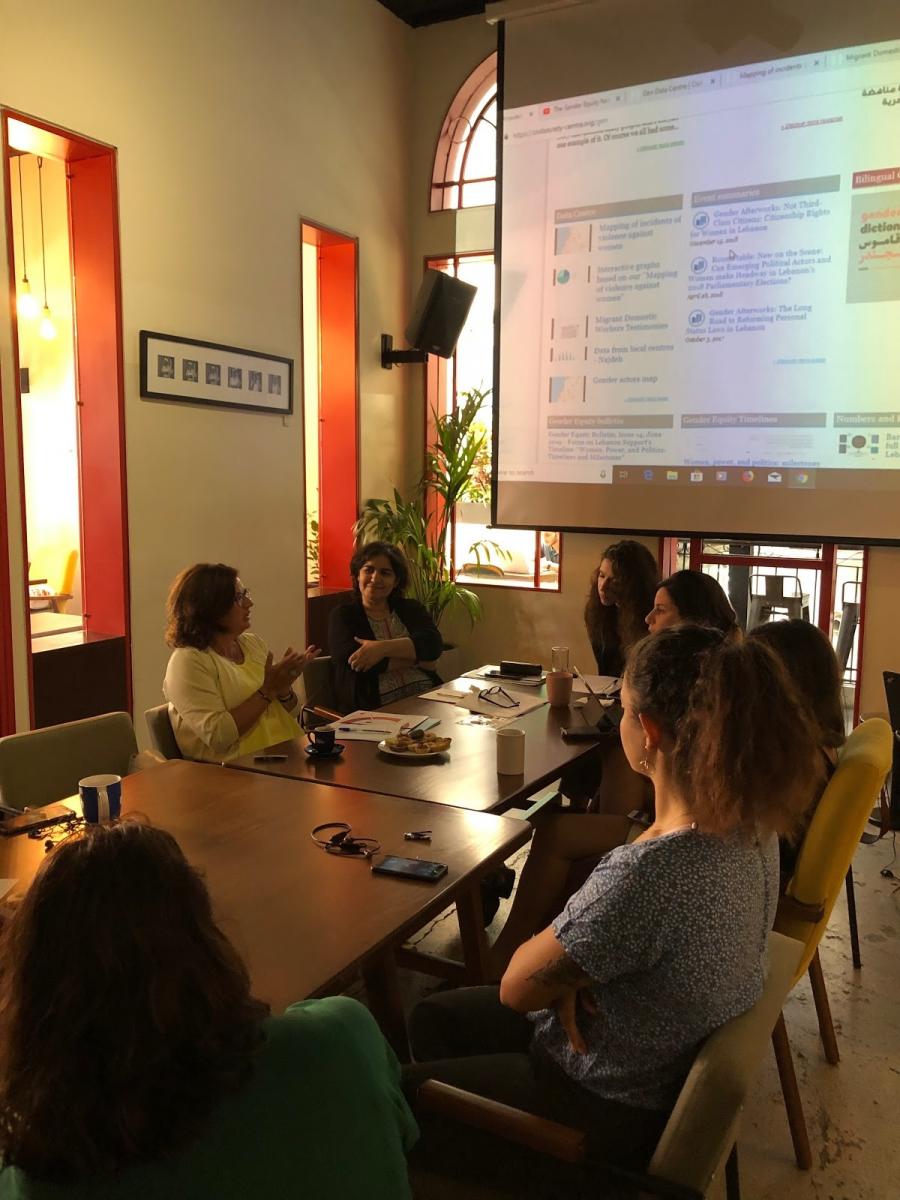
The workshop was organised as part of a project supported by Diakonia within our Gender Equity Network.
FOCUS ON
Women as agents of change -
Women have been mobilising for change since the 1920s, and more so after 1953 when they were granted suffrage. At the front lines of change, they have demanding greater gender equality in accessing socio-economic and political rights.
For more on women’s movements, explore the timeline of “Women, power, and politics: milestones from Lebanon” which documents historical, social, and political achievements, notable events, and outstanding figures of the women’s movements in Lebanon as well as pioneering leader women’s trajectories.
You can also explore the interactive timeline “Women's Movements in Lebanon” retracing mobilisations relevant to gender since the 1920s, for a historical overview of feminist and women’s movement in Lebanon.
Additionally, the interactive timeline “Women's achievements in Lebanon” compiles women’s achievements in Lebanon dating back to 1953 with gaining suffrage and the right to be elected, to more contemporary ones in 2014, such as the promulgation of the law protecting women from family violence, and the extension of maternity leave.

What mobilises Lebanon? Focus on socio-economic demands
Protests have been ongoing in Lebanon since October 17 2019, in an unprecedented geographic spread, largely motivated by demands to access socio-economic rights, which are part and parcel of human rights. This infographic visualises these demands, shedding light on the role of civil society actors in mobilising on these issues throughout the years, and in creating and framing rights-based demands and discourses.
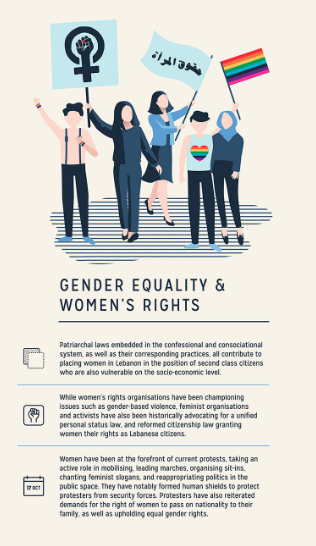
4. Newest gender organisations registered on Daleel Madani
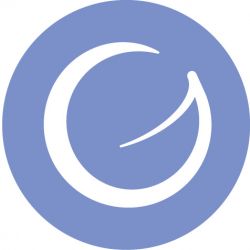
Global Partners Governance:
View their profile on Daleel Madani here:
Global Partners Governance is a social purpose company working to strengthen political institutions and improve the quality of representation around the world.
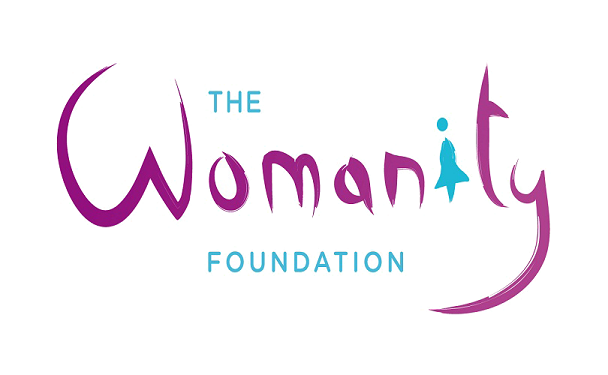
The Womanity Foundation
View their profile on Daleel Madani here:
Womanity believes that the media can play an influential role in affecting societal norms, and gender relations.
Womanity
Gender news
Focus on women’s mobilisations in Lebanon since October 17th, 2019
- The protests have provided women and the LGBTQIA community with a public space to voice their demand for socio-political change, by re-examining homophobic sentiments in mainstream society.
- On November 3, multiple feminist NGOs and a large crowd marched from the National Museum of Beirut to Martyr’s Square chanting that “the revolution is a woman,” while also commemorating activist Nadine Jouni whom died in a car accident earlier in October.
- On November 6, thousands attended a women’s candle-lit vigil in Martyr’s Square in Beirut, denouncing rampant corruption.
- On November 9, women marched in Rachaiya denouncing financial institutions, unregulated capital controls, and the pauperisation of the Lebanese people.
- On November 12, women protested in Moucharafieh demanding greater social protection.
- On November 17, women marched in Kfar Roummane demanding greater social protection.
- On November 23, a feminist march was organised in Sour along right-based demands relating to granting women equal citizenship rights, reforms regarding family laws, and the toppling of sectarianism. They also sat-in in front of the Central Bank denouncing capital controls.
- On November 30, women from Khanda’ Ghami’ and Achrafieh jointly marched to promote peaceful co-existence, and to counter the tension between residents resulting from incidents the day before. Indeed, women have exerted efforts to maintain the non-violent nature of the protests.
- On December 1, women in Saida organised a march denouncing incidents of conflict and repression, and the prevalence of rampant corruption, all the while demanding the unification of the Lebanese people
- On December 7, groups of women marched through the streets of Beirut to protest sexual harassment and bullying and demanding rights including the passing of citizenship to children of Lebanese women married to foreigners. Additionally, on the same day, women in Marjaaiyoun and Hasbaiya organised a sit-in denouncing the deterioration of socio-economic living conditions.
- On December 9, many marched from Bliss street to Riad el Solh, protesting against Gender-Based Violence (GBV).
- Several female journalists have witnessed physical or verbal assaults during the protests, some of which are Dima Sadek, Joyce Akiki, and Nawal Berry.
Lebanon’s top military prosecutor has for a second time ruled not to file charges against an Army officer for “homosexual activity,” despite alleged pressure from the former defense minister.
Around the world
- Radwa Mohamed, a 25-year-old Egyptian activist, was arrested after she posted a video denouncing the regime and criticizing President Abdel Fattah el-Sisi's wife, sparking a social media campaign and drawing global condemnation.
- In December, Saudi Arabia ended gender-segregated entrances for restaurants and eased other restrictions, including bans on women driving.
- Chilean anti-rape protest song about rape culture and victim shaming has become a viral anthem for feminists around the world.
- Turkey proposes a ‘marry your rapist’ bill, which pardons men convicted of statutory rape, if they marry their victim.
This bulletin is published as part of the Gender Equity Network, a project by Lebanon Support. It was developed in partnership with Diakonia.
The Gender Equity Network (GEN) is an online thematic and collaborative project, part of Lebanon Support’s Civil Society Knowledge Centre (CSKC).













